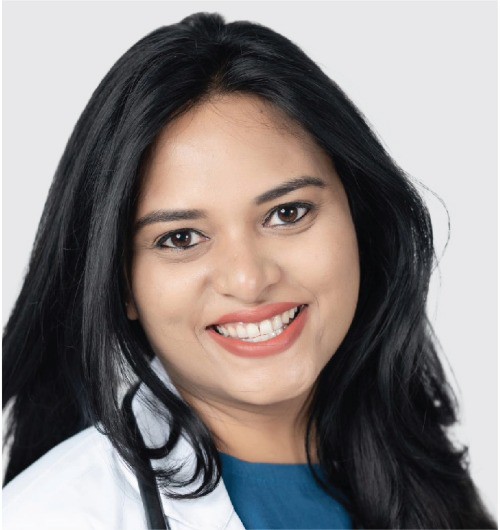Best High-Risk Pregnancy Hospital in Gachibowli, Hyderabad
Welcome to KIMS Cuddles, your foremost destination for high-risk pregnancy care in Gachibowli, Hyderabad. As the best high-risk pregnancy hospital in the region, we are committed to providing specialized and compassionate care to expectant mothers facing unique challenges during their pregnancy journey.
Best High-Risk Pregnancy Hospital in Gachibowli, Hyderabad
For those in Gachibowli seeking the best high-risk pregnancy hospital, KIMS Cuddles is your go-to destination. Located in the center of Gachibowli, our hospital is manned by a group of highly skilled specialists and furnished with cutting edge equipment. We are dedicated to ensuring the health and well-being of both mother and baby in high-risk pregnancy situations.
What is High-Risk Pregnancy?
When a pregnancy is considered high-risk, it means that there is a higher risk to the mother's health, the health of the unborn child, or both. A high-risk pregnancy is determined by a number of characteristics, such as the mother's age, any pre-existing medical issues, multiple pregnancies (e.g., twins or triplets), and potential pregnancy difficulties. These pregnancies require specialized medical attention and monitoring to manage potential complications.
Which Hospital is Best for High-Risk Pregnancy in Gachibowli?
If you are in Gachibowli and looking for the best hospital for high-risk pregnancy, KIMS Cuddles is your answer. We are the top choice for pregnant moms near Gachibowli because of our dedication to quality and patient-centered care. We understand the unique challenges posed by high-risk pregnancies and tailor our approach to meet the specific needs of each patient.
Best High-Risk Pregnancy Specialists and Doctors in Gachibowli
At KIMS Cuddles, we take pride in having the best high-risk pregnancy specialists and doctors in Gachibowli. Maternal-fetal medicine specialists with years of experience and compassion make up our team. They offer individualized care and direction throughout the pregnancy experience, bringing a variety of expertise and abilities to meet the difficulties of high-risk pregnancies.
Our commitment to excellence extends to having the best high-risk pregnancy doctors in Gachibowli, Hyderabad. Our doctors are leaders in their field, dedicated to staying updated on the latest advancements in maternal-fetal medicine. With a focus on open communication and patient education, our doctors ensure that you feel informed and supported throughout your high-risk pregnancy.
High-Risk Obstetrics in Gachibowli, Hyderabad
KIMS Cuddles specializes in high-risk obstetrics in Gachibowli, Hyderabad. Our multidisciplinary approach involves a team of obstetricians, neonatologists, and other specialists working together to provide comprehensive care. From early pregnancy monitoring to the management of complex conditions, our high-risk obstetrics services are designed to optimize outcomes for both mother and baby.
High-Risk Pregnancy Doctors in Gachibowli, Hyderabad
For those in Gachibowli seeking high-risk pregnancy doctors, KIMS Cuddles boasts a team of highly skilled and experienced professionals dedicated to providing specialized care. Our doctors in Gachibowli understand the unique challenges posed by high-risk pregnancies and are equipped to manage and monitor these situations with expertise and precision.
Best High-Risk Pregnancy Hospitals Near Me
Convenience is key when it comes to high-risk pregnancies. If you're searching for the best high-risk pregnancy hospitals near you, KIMS Cuddles in Gachibowli is easily accessible. Our central location ensures that expectant mothers receive timely and expert care, minimizing stress and ensuring a seamless experience.
For those looking for the best high-risk pregnancy doctors nearby, KIMS Cuddles ensures that our specialists are readily available to provide the support and care you need. We understand the importance of having a trusted healthcare partner nearby during a high-risk pregnancy and strive to be there for our patients every step of the way.
Accessibility to a high-risk pregnancy specialist is crucial for timely and effective care. KIMS Cuddles ensures that our specialists are located conveniently for those seeking high-risk pregnancy care in Gachibowli. Our commitment to being a reliable healthcare partner means that you can access expert care and support near you.
In conclusion, KIMS Cuddles in Gachibowli, Hyderabad, is your trusted partner for high-risk pregnancy care. Our commitment to excellence, coupled with a team of highly skilled specialists and state-of-the-art facilities, makes us the best choice for expectant mothers facing the challenges of a high-risk pregnancy. Your journey to a healthy pregnancy begins with us, as we stand by you with personalized care and unwavering support.


















